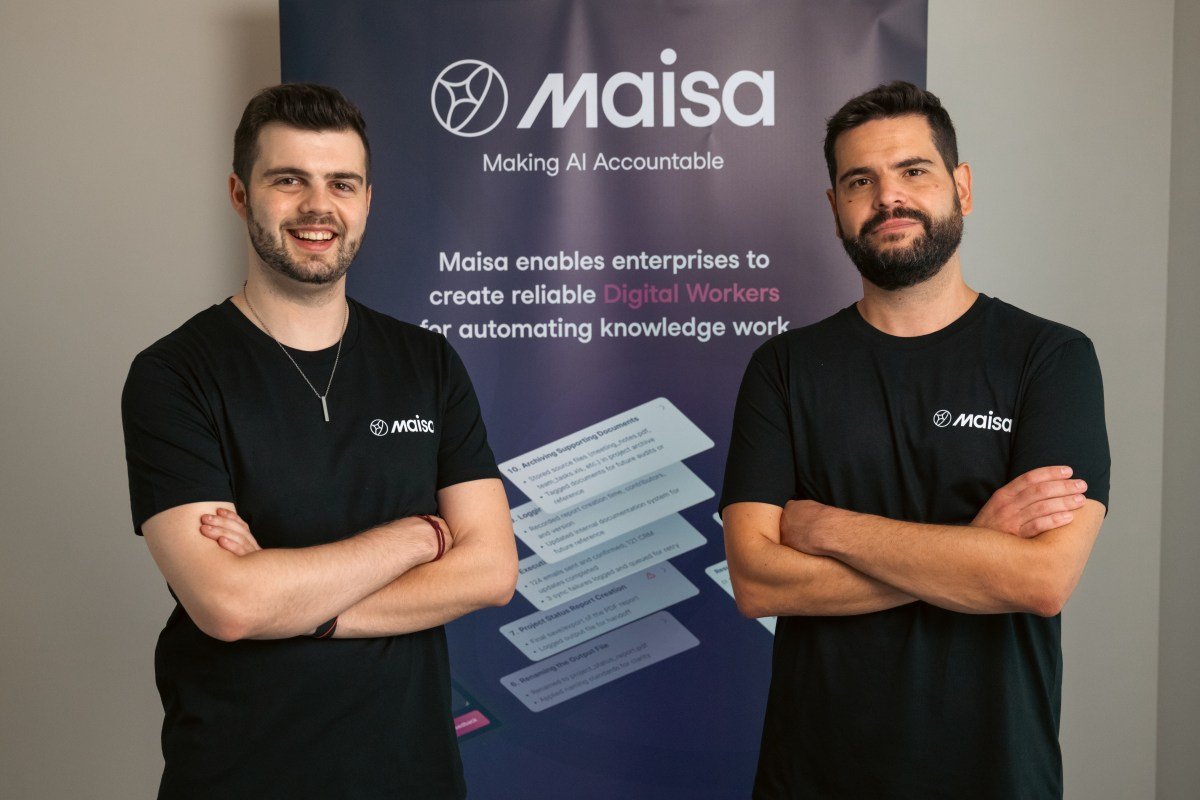A New Era in AI: Maisa AI Addresses the 95% Failure Rate of Generative AI Pilots
A staggering 95% of generative AI pilots at companies are failing, according to a recent report published by MIT’s NANDA initiative. However, forward-thinking organizations are not giving up. Instead, they are exploring agentic AI systems capable of learning and being efficiently supervised.
Introducing Maisa AI: Pioneering Accountable AI Solutions
This is where Maisa AI steps in. The innovative startup has built its foundation on the belief that enterprise automation needs accountable AI agents rather than obscure black boxes. With a recent $25 million seed funding round led by European VC firm Creandum, Maisa has unveiled Maisa Studio—a model-agnostic self-service platform that enables users to train digital workers using natural language.
A Unique Approach to AI-Driven Processes
While the concept might seem akin to vibe coding platforms like Cursor and Lovable, Maisa emphasizes a fundamentally different methodology. “Instead of using AI to generate responses, we leverage AI to construct the processes required to achieve those responses—what we call ‘chain-of-work,’” says CEO David Villalón.
The Visionary Team Behind Maisa AI
Leading this innovative approach is co-founder and Chief Scientific Officer Manuel Romero, a former colleague of Villalón at the Spanish AI startup Clibrain. They recognized the limitations of AI in 2024, expressing the need for a solution that mitigated hallucinations, understanding that “you cannot solely rely on AI,” as Villalón articulated.
HALP: Human-Augmented LLM Processing
Maisa introduces HALP, or Human-Augmented LLM Processing, a unique system that encourages user interaction while digital workers delineate their operational steps. This approach resembles students solving problems at a blackboard, making the process more collaborative.

Building Trust with the Knowledge Processing Unit
Maisa also developed the Knowledge Processing Unit (KPU), a deterministic mechanism designed to curb hallucinations. Initially focused on solving technical challenges rather than specific use cases, Maisa soon discovered that its emphasis on reliability resonated with organizations eager to apply AI responsibly—ranging from a prominent bank to firms in the automotive and energy sectors.
Revolutionizing Robotic Process Automation
By catering to enterprise clients, Maisa aims to redefine robotic process automation (RPA), facilitating productivity boosts without the need for rigid, predefined protocols or extensive manual coding. The startup offers deployment in both secure cloud and on-premises environments to meet diverse organizational needs.
TechCrunch Event
San Francisco
|
October 27-29, 2025
Strategizing for Future Growth in the AI Landscape
Despite its enterprise-first orientation resulting in a smaller customer base compared to the millions flocking to freemium vibe-coding platforms, Maisa aims to capture market share as these competitors pivot to enterprise appeal. The launch of Maisa Studio is designed to expand its customer funnel and facilitate adoption.
Global Expansion Plans and Industry Partnerships
Maisa plans to scale with existing clients with operations across various countries. With headquarters in Valencia and San Francisco, Maisa is set to strengthen its foothold in the U.S.; its $5 million pre-seed funding last December was led by San Francisco venture firms NFX and Village Global.
Attracting Investment for Regulated Sectors
TechCrunch has learned that U.S. firm Forgepoint Capital International participated in this latest funding round through its European venture with Banco Santander, emphasizing Maisa’s appeal within regulated industries.
Maisa’s Unique Position in the Competitive AI Marketplace
Focusing on intricate use cases that demand accountability from non-technical users could set Maisa apart from competitors like CrewAI and various other AI-driven workflow automation tools. In a recent LinkedIn post, Villalón underscored the pitfalls of the “AI framework gold rush,” warning that shortcuts can lead to long-term complications when reliability, auditability, and corrective measures are needed.
Doubling Staff to Meet Demand and Deliver Results
With ambitions of expanding its team from 35 to 65 by the first quarter of 2026, Maisa is poised for rapid growth. Starting in late 2025, the startup expects to serve its waiting list and prove that it can deliver on its promises. “We are going to show the market that there is a company that is delivering what has been promised, and that it’s working,” Villalón asserts.
Here are five FAQs with answers related to the funding and mission of Maisa AI:
FAQ 1: What is Maisa AI, and what problem is it aiming to solve?
Answer: Maisa AI is a technology company focusing on improving enterprise AI solutions. The company aims to address the high failure rate of 95% in enterprise AI implementations by providing more effective and reliable tools and frameworks for businesses.
FAQ 2: How much funding did Maisa AI secure, and what will it be used for?
Answer: Maisa AI has secured $25 million in funding. This capital will be utilized to enhance their technology, scale their operations, and develop more robust AI solutions to help enterprises deploy AI successfully and efficiently.
FAQ 3: Why is the failure rate for enterprise AI so high?
Answer: The high failure rate in enterprise AI often stems from various factors, including a lack of understanding of AI technology, insufficient data quality, inadequate integration with existing systems, and unrealistic expectations regarding outcomes. Maisa AI aims to streamline these processes to improve overall success.
FAQ 4: What makes Maisa AI different from other AI companies?
Answer: Maisa AI distinguishes itself by focusing specifically on the enterprise sector’s unique challenges. Their solutions are tailored to provide actionable insights, improve data handling, and facilitate smoother implementation processes compared to generic AI offerings.
FAQ 5: What industries can benefit from Maisa AI’s solutions?
Answer: Maisa AI’s solutions can benefit a wide range of industries, including finance, healthcare, manufacturing, retail, and logistics. Any sector looking to leverage AI for improved efficiency, analytics, and decision-making can find value in Maisa’s offerings.


